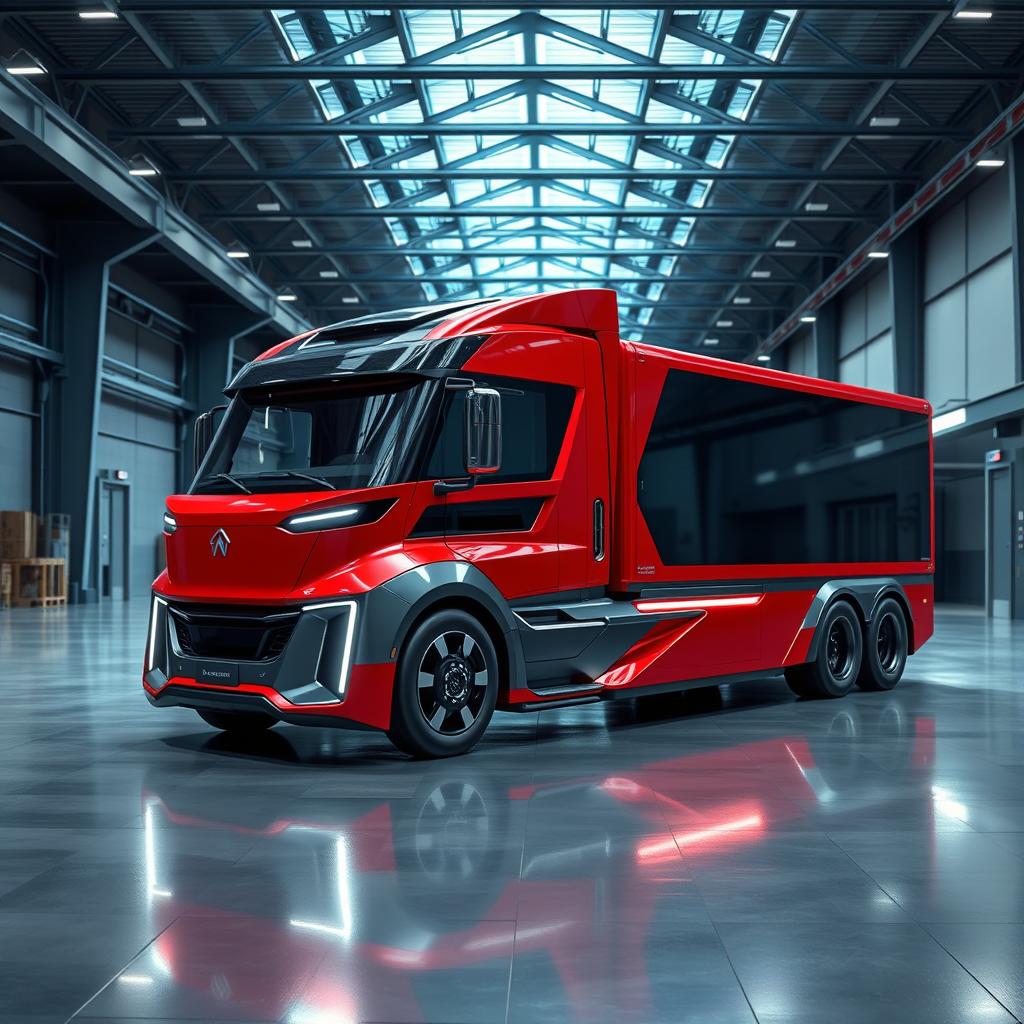Electric and Hybrid Trucks: The Future of Logistics
The transportation industry is undergoing a revolutionary transformation as electric and hybrid trucks in logistics become increasingly prevalent. With growing environmental concerns and the push for sustainable business practices, companies worldwide are reimagining their fleet operations. This shift isn’t just about being environmentally conscious – it’s about embracing innovative technology that promises to reshape the future of logistics and transportation.
The Rise of Electric and Hybrid Commercial Vehicles
The transition to electric and hybrid trucks represents more than just a trend; it’s becoming a necessity in modern logistics. According to the Environmental Protection Agency, traditional commercial vehicles contribute significantly to greenhouse gas emissions. This reality has sparked a surge in the development and adoption of alternative fuel vehicles.
Key Drivers of the Electric Revolution
- Environmental regulations and compliance requirements
- Rising fuel costs and maintenance expenses
- Technological advancements in battery technology
- Growing consumer demand for sustainable shipping options
- Government incentives and tax benefits
The market for electric commercial vehicles is expected to grow exponentially, with manufacturers like Tesla, Volvo, and Daimler leading the charge in developing innovative solutions for the logistics sector.
Understanding the Technology: Electric vs. Hybrid Trucks
Before diving deeper into their impact on logistics, it’s essential to understand the fundamental differences between electric and hybrid trucks.
Full Electric Trucks
Battery Electric Vehicles (BEVs) run entirely on electrical power stored in high-capacity batteries. These vehicles:
- Produce zero direct emissions
- Offer lower operating costs
- Require minimal maintenance
- Provide quiet operation
Hybrid Trucks
Hybrid vehicles combine traditional internal combustion engines with electric motors:
- Plug-in Hybrid Electric Vehicles (PHEVs)
- Conventional Hybrid Electric Vehicles (HEVs)
- Range-extended Electric Vehicles (REEVs)
Benefits and Challenges in Logistics Operations
The integration of electric and hybrid trucks into logistics operations presents both significant advantages and notable challenges.
Benefits
Cost Savings
- Lower fuel costs
- Reduced maintenance expenses
- Tax incentives and grants
- Better resale value
Environmental Impact
- Reduced carbon emissions
- Lower noise pollution
- Improved air quality in urban areas
- Enhanced corporate sustainability profile
Challenges
Operational Considerations
- Limited range compared to traditional vehicles
- Charging infrastructure requirements
- Higher initial investment costs
- Battery life and replacement concerns
Infrastructure and Implementation Strategies
Successful adoption of electric and hybrid trucks requires careful planning and infrastructure development. According to the U.S. Department of Energy’s Vehicle Technologies Office, charging infrastructure is crucial for widespread adoption.
Charging Infrastructure Requirements
- Level 1 charging (standard outlet)
- Level 2 charging (dedicated charging station)
- DC fast charging (rapid charging capability)
- Battery swap stations
Implementation Best Practices
Planning and Analysis
- Route optimization
- Charging schedule management
- Fleet size determination
- Training and maintenance programs
Future Trends and Innovations
The future of electric and hybrid trucks in logistics looks promising, with several emerging trends and innovations on the horizon.
Technological Advancements
- Improved battery technology and capacity
- Advanced telematics and fleet management systems
- Autonomous driving capabilities
- Smart charging solutions
Market Developments
- Increased manufacturer competition
- More affordable vehicle options
- Enhanced charging infrastructure
- Government support and initiatives
Making the Transition: Steps for Success
For companies considering the switch to electric and hybrid trucks, a structured approach is essential.
Assessment Phase
- Evaluate current fleet operations
- Analyze route requirements
- Calculate total cost of ownership
- Review available incentives
Implementation Phase
- Develop charging infrastructure
- Train staff and drivers
- Start with pilot programs
- Monitor and optimize performance
Conclusion
The transition to electric and hybrid trucks in logistics represents a significant shift in the transportation industry. While challenges exist, the benefits of reduced operating costs, environmental impact, and improved corporate image make this transition increasingly attractive for businesses of all sizes.
As technology continues to advance and infrastructure improves, the adoption of electric and hybrid trucks will become more widespread. Companies that begin planning and implementing these changes now will be better positioned for future success in the evolving logistics landscape.
Ready to explore how electric and hybrid trucks can transform your logistics operations? Contact our team of experts at +1 206-337-4787 to discuss your specific needs and develop a customized transition plan. Let us help you navigate the future of sustainable logistics with confidence and expertise.
Take the first step toward a more sustainable and efficient future for your fleet operations. Contact us today to schedule a consultation and learn more about how we can help you make the transition to electric and hybrid trucks.







